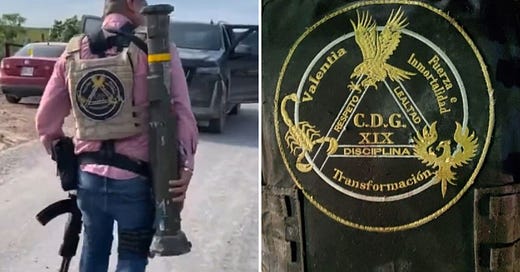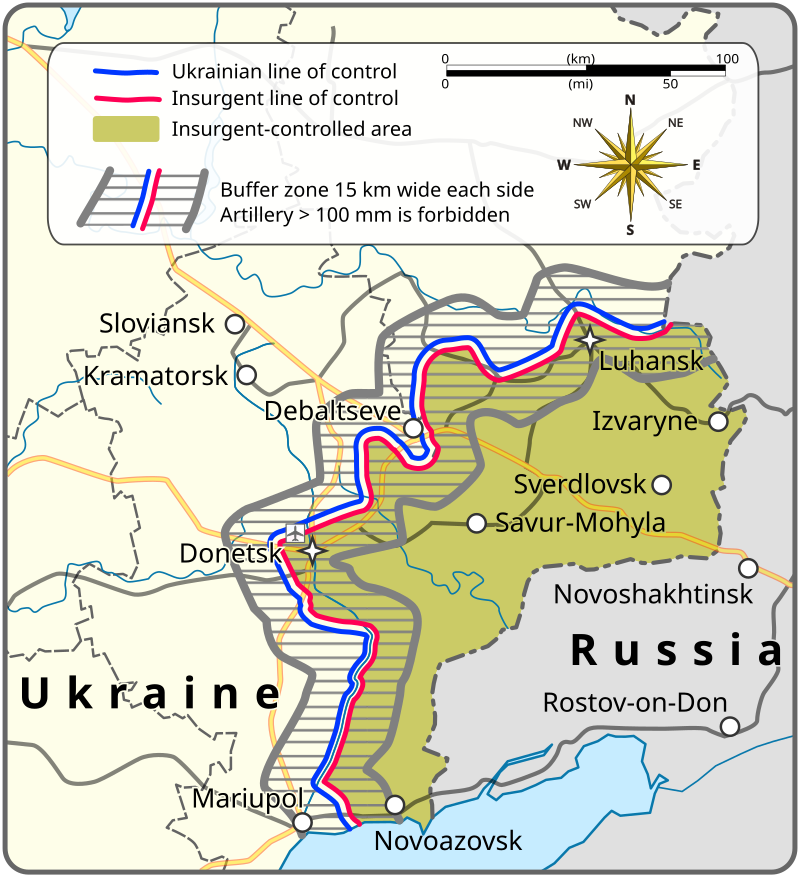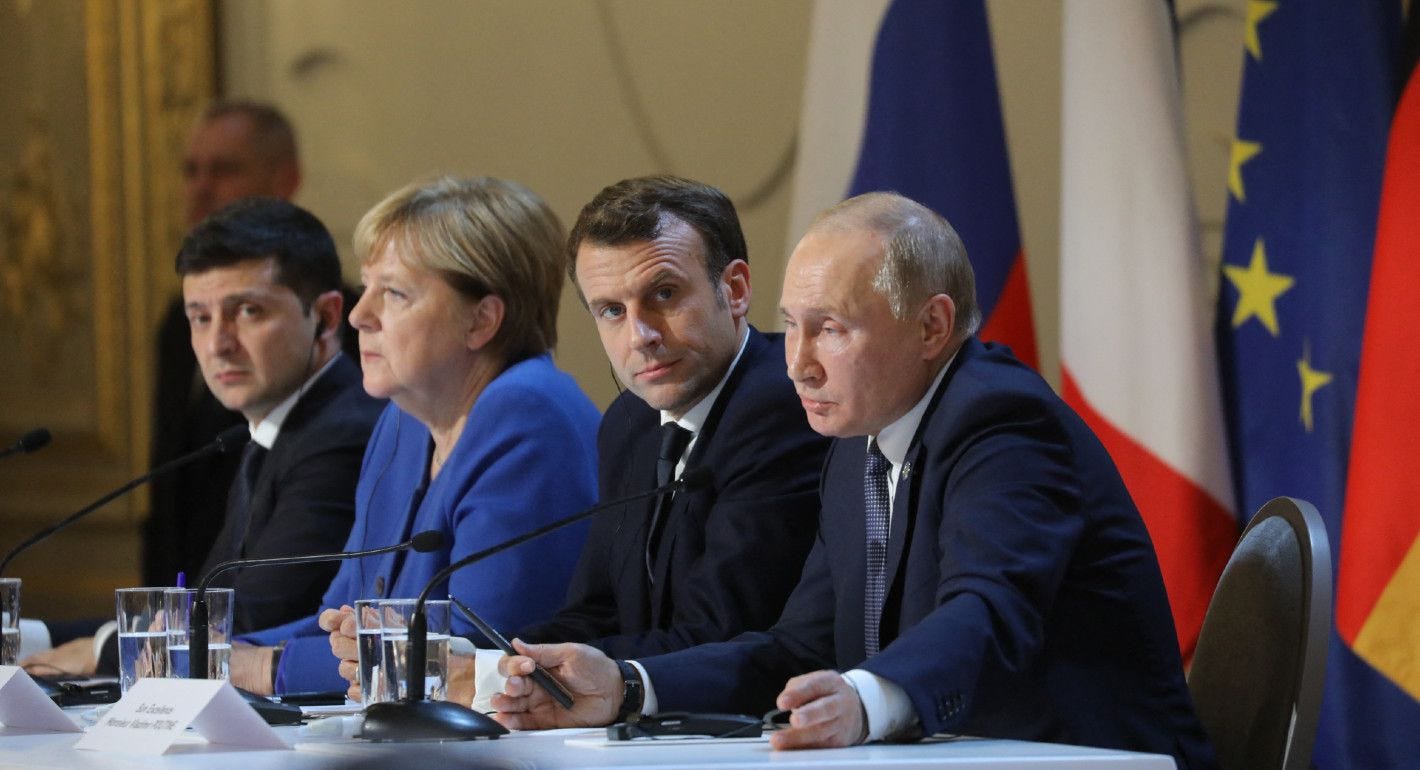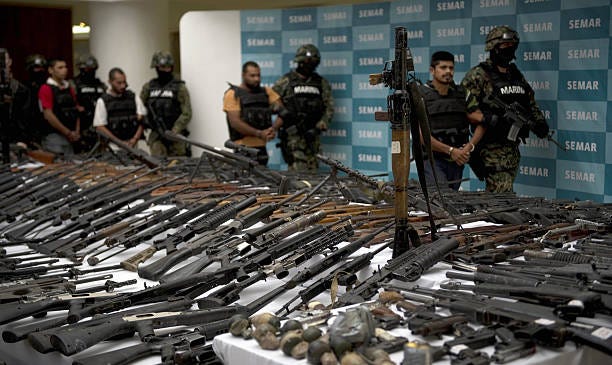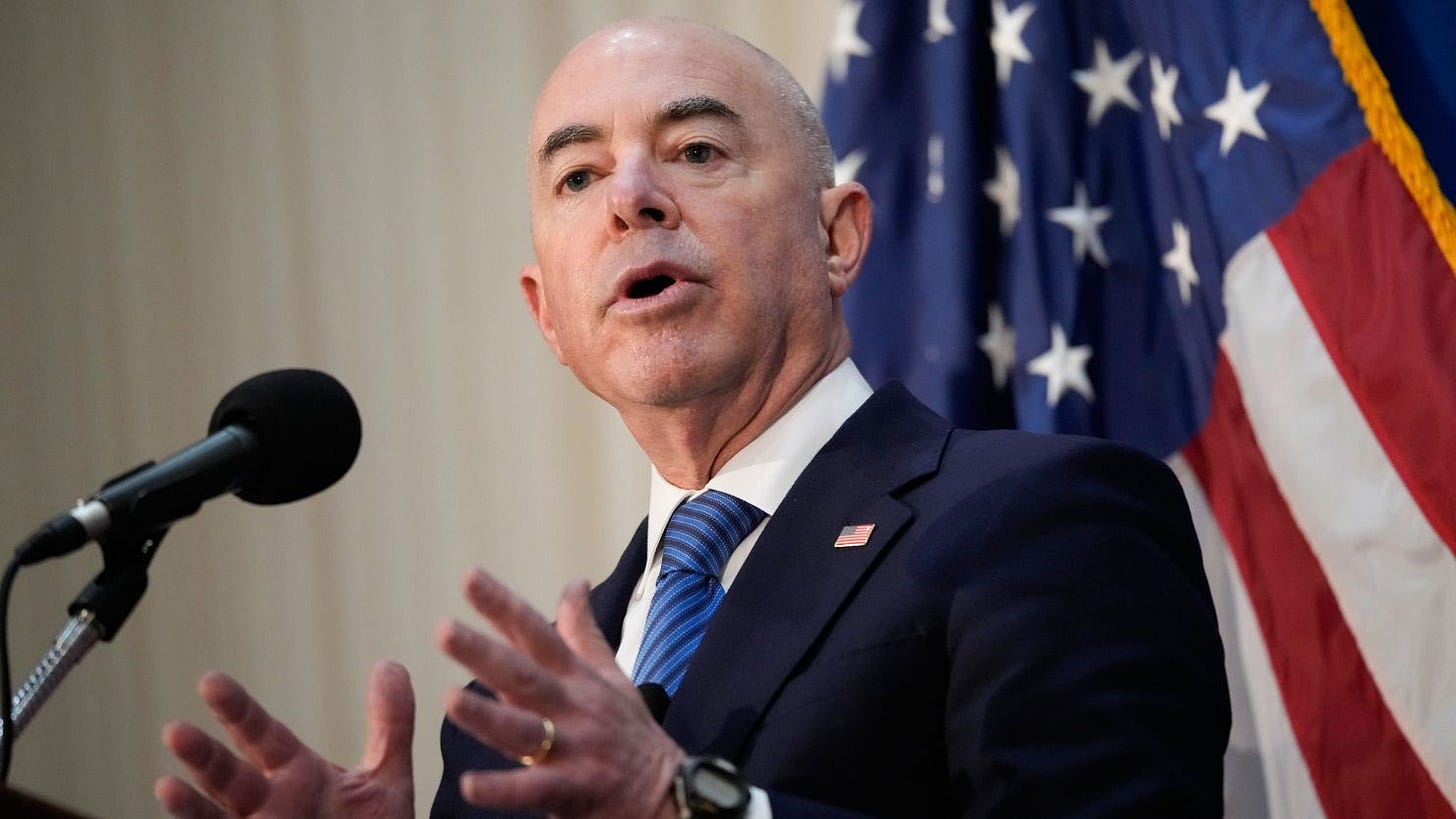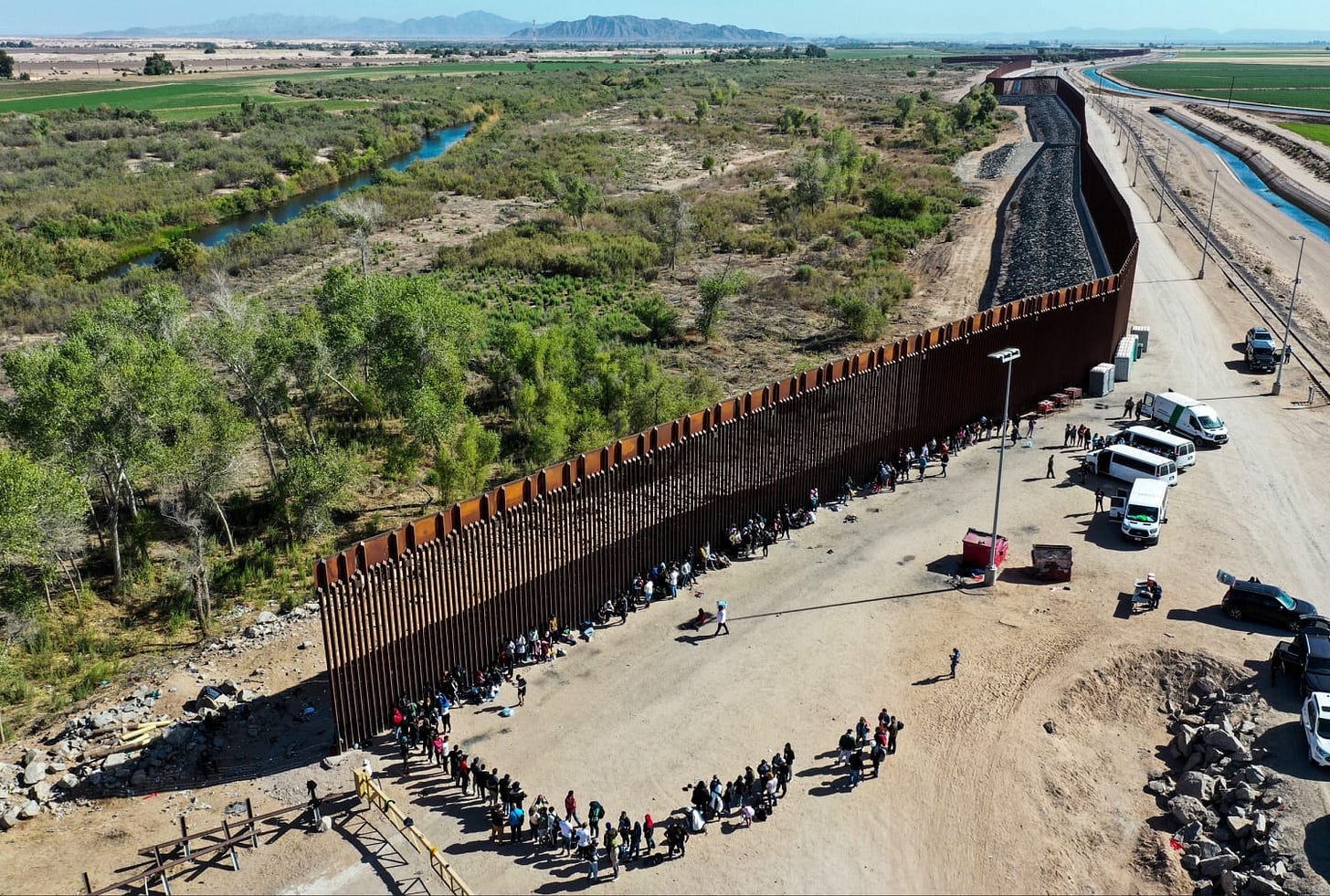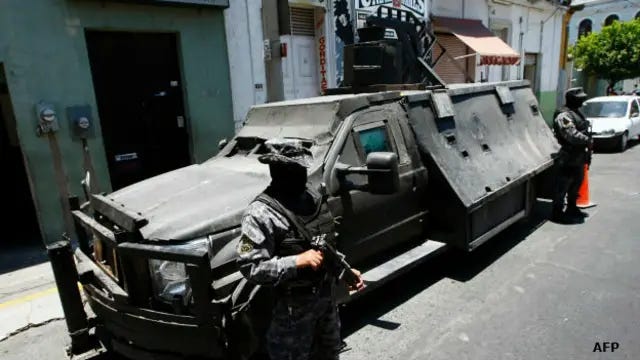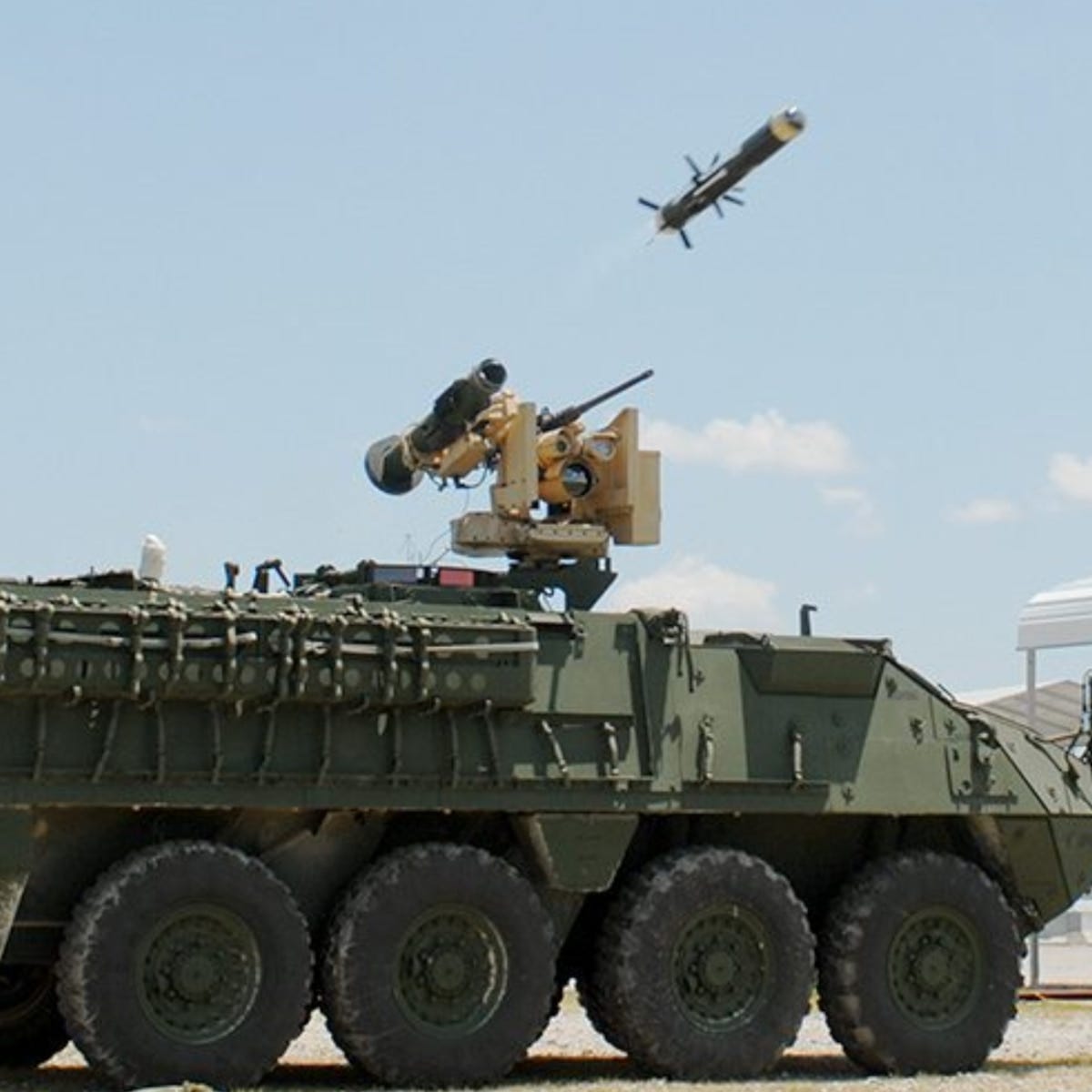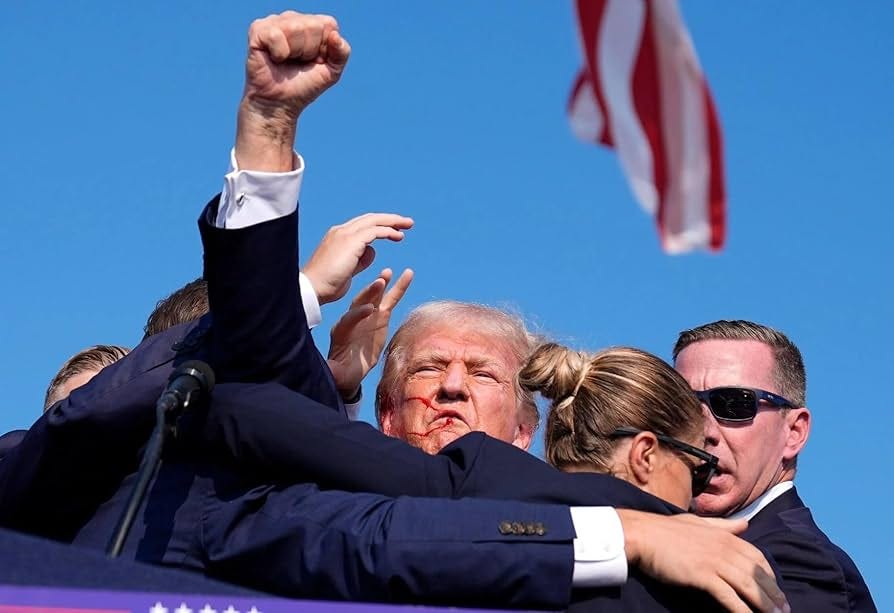Javelins, Cartels, and Ceasefire Deals
Tucker Carlson and Doug Macgregor Expose Major Threats to U.S. Security
In recent years, the intersection of foreign conflicts, national security, and domestic policy has become increasingly blurred. The growing involvement of the U.S. in international wars and military aid, especially concerning Ukraine and Russia, raises serious questions about the priorities of American leadership. At the same time, threats closer to home—like the staggering power of Mexican drug cartels—remain a constant, often overshadowed by distant foreign engagements.
In this eye-opening conversation between Tucker Carlson and Doug Macgregor, they dissect these issues, highlighting the contradictions and misalignments within U.S. policy. They argue for a shift in focus—away from foreign entanglements and towards the immediate threats impacting the American people, such as the unchecked flow of drugs across the border and the influence of cartels on U.S. politics.
This article delves deep into the insights shared by Carlson and Macgregor, offering an analysis of their positions on Ukraine, U.S. border security, and the misallocation of military resources. What emerges is a stark reminder that the most significant threats to American security might not come from far-off nations but from much closer to home.
But as we continue to explore these crucial topics and strive to shed light on them, we need your help. Our goal is to reach as many people as possible to foster thoughtful discussions about the future of our nation and its policies. If you found this article insightful, please consider sharing it with others. By doing so, you’ll help us grow our platform and ensure that these critical conversations continue to reach the widest audience possible. Your support is invaluable.
The Proposed Ceasefire Deal Between Ukraine and Russia
Doug Macgregor emphasizes that there is a significant disconnect between Washington's political elites and the reality on the ground in Ukraine. According to Macgregor, the long-term commitment to military support and intervention doesn't serve U.S. interests and perpetuates the ongoing devastation in Ukraine. He argues that "The only reasonable way forward is a peace deal that can stop the destruction in Ukraine." Instead of pouring more military aid into the conflict, Macgregor suggests that the U.S. should focus on pushing for a ceasefire that ends the bloodshed and opens the door for political resolution.
Tucker Carlson is on the same page, asserting that the current approach seems "detached from what most Americans would consider in their best interest." As he puts it, “It’s not even clear why we are spending so much to defend Ukraine when it’s our own economy and security that should be the priority.”
The mention of ceasefire deals brings to mind historical examples like the Minsk Agreements, designed to end the fighting in eastern Ukraine. While these deals initially seemed promising, they were undermined by a lack of enforcement, continued fighting, and differing interpretations by both sides. The failure of past ceasefires in Ukraine highlights the complexities of such agreements—peace deals can often be more fragile than they appear on paper. Could a new ceasefire agreement be the breakthrough, or would it simply be another missed opportunity?
A successful peace deal would require more than just halting military activity. It would necessitate a long-term political strategy, ensuring that both Russia and Ukraine could coexist peacefully. This wouldn’t just be a win for Ukraine but for international diplomacy, showing that even the most entrenched conflicts can be resolved through dialogue. The real question is: do the global powers have the political will to make this happen?
A ceasefire might not simply bring an end to the bloodshed; it could signal a shift in global power dynamics. Ukraine’s relationship with NATO, the European Union, and Russia would need reevaluation. Would NATO, in particular, feel compelled to de-escalate its military stance towards Russia, or would it double down in support of Ukraine to ensure it does not fall into Russia’s sphere of influence?
From a geopolitical perspective, if NATO backs a ceasefire, it could mark a historical pivot away from military escalation and towards political diplomacy. However, the consequences of such a shift on U.S.-Russia relations are difficult to predict. The United States would need to reevaluate its strategic priorities, balancing NATO’s interests with the need for de-escalation in Eastern Europe. If a ceasefire is the solution, could prolonged conflict resolution or negotiation over territory be another pathway? Some might argue that achieving a lasting peace requires even greater patience—negotiations over borders, international guarantees, and the gradual rebuilding of trust. On the other hand, the risks of further escalation or entrenched proxy wars are real.
Ultimately, the decision to pursue a ceasefire versus prolonged conflict could shape global politics for decades. Should the U.S. embrace the possibility of peace through diplomatic means, the lessons learned might help redefine future approaches to international conflicts, pushing for negotiated settlements instead of military intervention.
The Threat of Mexican Drug Cartels
Doug Macgregor asserts that Mexican drug cartels represent a much greater immediate threat to U.S. national security than any foreign adversary, including China, Russia, or Iran. "The cartels are an immediate threat to American life on a scale that China, Russia, or Iran can only dream of," Macgregor points out. This threat is not just about illegal drugs flooding U.S. borders but the devastating social and economic consequences of drug addiction, violence, and public health crises.
Tucker Carlson agrees, adding that the cartels’ influence extends far beyond the drug trade. "They control vast parts of the drug trade, and they’ve got some U.S. officials on their payroll—this isn’t a theoretical problem. It’s here and it’s real," Carlson explains. The cartels' ability to infiltrate the U.S. political system and law enforcement shows just how deeply entrenched the issue is.
Mexican drug cartels are not just a nuisance; they represent a direct, existential threat to U.S. society. With billions of dollars flowing into the U.S. through illicit trade routes, these organizations wield extraordinary influence—not just over drug supply chains but over entire regions. The opioid crisis, fueled by fentanyl, is a tragic example of the deep-rooted influence cartels have in shaping American public health and safety.
The scale of cartel power is difficult to grasp unless you look at the cold numbers—$100 billion a year in illicit drug trade revenue, with fentanyl alone being a key player in opioid deaths across America. The power these cartels hold is nothing short of immense, affecting not only the streets but also Washington. If U.S. leadership fails to address this, it risks empowering these cartels even further, creating an even more unmanageable crisis.
“CIA, possibly with the help of foreign government, murders the president of United States. And it’s super obvious that that happened in 1963. And nobody believes the Warren Commission... So they start calling anyone who raises questions about it a conspiracy theorist.”
One of the most alarming elements of the cartel problem is the alleged infiltration of the U.S. political system. Carlson's comments about officials potentially being on cartel payrolls are chilling, but it’s not far-fetched to consider the scope of the corruption. We’ve seen similar cases in the past, and it’s important to ask: is the political elite turning a blind eye to cartel power, or is there a more sinister entanglement?
This corruption impacts not just local law enforcement but also national policy. How can a country tackle drug cartels if it’s not even sure where the influence of these cartels begins and where American political interests end? The deeper the infiltration, the harder it becomes for American society to root out this threat—making this a national security issue that cannot be ignored.
The failure to protect U.S. borders from cartel activity represents a monumental security lapse. While the U.S. invests billions in military interventions abroad, domestic security remains underfunded and poorly equipped to handle the scale of the cartel problem.
The debate over U.S. border security needs to shift from a discussion about immigration to one about combating the cartel’s overwhelming presence. Are we prepared to face an enemy that doesn’t play by conventional rules? The resources needed to counteract the cartels may need to be just as robust as those used for foreign conflicts.
Why are Javelin Missile Systems on the Mexico - U.S. Border?
Doug Macgregor raises an alarming point about the presence of advanced military technology, specifically Javelin missile systems, in the hands of Mexican drug cartels along the U.S.-Mexico border. He suggests that these cartels have gained access to such powerful weaponry, which has the potential to significantly alter the power dynamics on the border. This claim highlights an alarming vulnerability: the growing militarization of criminal organizations, which could further destabilize the security of the region.
Tucker Carlson expresses concern over the prioritization of military spending for international conflicts, particularly those in Ukraine, rather than securing U.S. borders. The implication here is that U.S. resources are being funneled abroad at the expense of safeguarding domestic security, especially when threats like the cartels' military-grade weaponry are being overlooked.
The suggestion that Mexican drug cartels have access to Javelin missile systems is a stark warning of how far criminal organizations are willing to go to increase their military capabilities. Javelin missiles, typically associated with anti-tank operations on battlefields, are a symbol of how cartels are increasingly operating as quasi-military forces with sophisticated weaponry. The implications of such technology being used by cartels raise serious concerns about the ability of U.S. border enforcement to combat these well-funded and heavily armed organizations.
Historically, drug cartels have had access to various military-grade weapons, including assault rifles, explosives, and even surface-to-air missiles, but Javelin systems are on a different level. These anti-tank missiles could be used not just to target military vehicles but also to make coordinated attacks on border patrol vehicles or U.S. infrastructure. The cartels' access to such technology could escalate violence in the region, making the task of securing the border far more dangerous for U.S. law enforcement.
What makes this situation even more dire is the perception that the U.S. government has neglected to address these domestic threats effectively. While vast resources are devoted to foreign military interventions, the cartels—now reportedly armed with advanced weaponry—continue to operate unchecked across the southern border. This imbalance raises questions about the allocation of resources and whether the U.S. military and security agencies are truly prepared to confront these new challenges.
The connection between the cartels' access to military technology and their growing influence within U.S. borders also points to a deeper issue: political corruption. Macgregor's concerns about U.S. officials possibly being on the payroll of cartels tie into broader discussions about the cartels’ penetration into American political and law enforcement systems. The ability of cartels to fund and manipulate political structures increases their power, making it harder for the U.S. government to take decisive action against them.
There have been past examples of cartel-related corruption, such as bribing border agents or local law enforcement, which make it difficult to stem the flow of illegal goods and people. If high-ranking officials are indeed complicit in cartel operations, it not only complicates U.S. law enforcement efforts but also undermines public trust in institutions meant to protect citizens.
The fact that cartels could possess Javelins, along with other high-tech weapons, reflects a growing militarization of criminal organizations in the region. This highlights the need for the U.S. to rethink its approach to border security, as simply deploying more personnel or building a wall may not be enough in the face of this escalating threat. More robust, tech-driven solutions—such as enhanced surveillance systems and drone patrols—might be necessary to monitor and control these high-risk areas.
The U.S. military’s involvement in border security might also need to be reconsidered, as advanced weaponry like Javelin missiles could make traditional enforcement tactics obsolete. Strategic investments in intelligence and counterintelligence operations will be crucial to neutralize the growing influence of cartels and reduce the flow of illegal weapons and drugs.
Critique of U.S. Foreign Policy and European Integration
Macgregor also argues that European countries, particularly Germany, are losing their national identity in the wake of globalist pressures. Carlson adds, “There’s been a systematic brainwashing in Europe, and countries like Germany are now reluctant to assert their national pride and sovereignty.”
The U.S. has always had an expansive foreign policy, but in recent years, it has become increasingly entangled in conflicts that seem disconnected from core national interests. Macgregor’s point is important: is this pattern sustainable? The growing militarization and expansion of U.S. influence abroad might be reaching a tipping point.
The question here is: where is the line between a global superpower protecting its interests and a nation overextending itself in faraway conflicts? Could a reset in U.S. foreign policy—one that focuses on domestic security and reducing military entanglements—actually yield better outcomes for the country’s long-term stability?
Carlson’s assessment of Europe’s diminishing national pride reveals a shift in the continent’s political and social makeup. Is the European Union helping or hindering the countries within it? Could Europe, in its quest for unity, be suppressing the very identities that made individual nations strong?
Europe’s identity crisis could have major implications for global stability. As nationalism rises, the European Union might face increasing internal pressures. Should European nations reclaim more sovereignty, or should they continue the trend of collective governance? How this tension plays out could reshape the region for generations.
Conclusion: Reconnecting Policy to National Interests
Macgregor closes the conversation by urging the U.S. to refocus its efforts on solving domestic issues, such as cartel influence, economic instability, and national security. "We must look inward and address the real threats to our society before we engage in more foreign conflicts," he asserts. Carlson concurs, emphasizing that the U.S. must prioritize its own well-being over foreign conflicts: "We need to focus on our own internal problems—border security, drug cartels, and economic health—before getting embroiled in conflicts overseas."
If the U.S. wants to remain a global leader, it must first ensure that it is strong at home. Whether it’s addressing cartel violence or reinvesting in domestic infrastructure, the focus should be on creating a resilient society from within.
The U.S. has the potential to lead the world through strength, but that strength must first be built on a solid foundation at home. Domestic policy reform that balances national security with economic and social well-being will ultimately make the U.S. a stronger global player, better able to face the challenges of a rapidly changing world.
We invite you to share this article with others and continue the conversation. With your support, we can grow our platform and reach even more people who are interested in critically engaging with these vital issues. Together, we can ensure that these important perspectives and discussions reach a wider audience, fueling deeper analysis and action.


